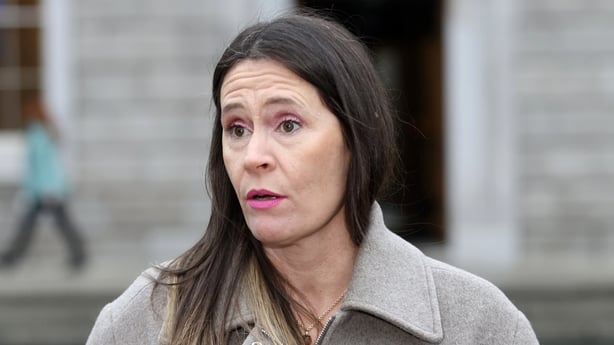Draft legislation which would remove the requirement for UN Security Council authorisation on Irish participation in peacekeeping missions will be brought to Cabinet tomorrow by Tánaiste and Minister for Foreign Affairs and Defence Simon Harris.
Speaking on RTÉ's This Week, Mr Harris said that the Government was "determined to move on this issue", adding that Ireland's "proud tradition" in peacekeeping cannot be held up by what he termed "paralysis at UN".
He added that the Government's plan is for the Cabinet and the Dáil to decide in the future on any peacekeeping missions, although he said consideration would be given to the UN charter during those talks.
Mr Harris argued that it was not appropriate for the five permanent members of the UN Security Council to have a veto on such a decision - "Russia or anyone else".
The Tánaiste said that no peacekeeping mission had been authorised by the Security Council since 2014, and such a veto "needs to be modified" and that could include regional cooperation with EU member states.
Asked if Irish troops could in the future participate in a peacekeeping mission in Ukraine, Mr Harris said that he did not think that Ireland could "recuse" itself from participating.
He added that, under the current rules, the Government would effectively have to seek Russian permission, which he described as "a rather bizarre situation".
Under existing rules, 12 members of the Irish Defence Forces can be sent on an overseas mission without triggering the triple lock.
The Tánaiste said that this would be increased from 12 to 50 members, saying that Ireland has to be "agile" and be in a position to get Irish citizens out of danger as was the case recently in Afghanistan and Sudan.
He contended that the changes had "nothing to do with neutrality", as Ireland would continue to be militarily neutral and opposed to joining any military alliances.
We need your consent to load this rte-player contentWe use rte-player to manage extra content that can set cookies on your device and collect data about your activity. Please review their details and accept them to load the content.Manage Preferences
'Attack on our neutrality'
The Government's move to "dismantle the triple lock is an attack on our neutrality", Social Democrat TD Sinéad Gibney said.
The party’s Spokesperson for Foreign Affairs and Defence added that the decision to bring forward such legislation is "retrograde step" that "will change the triple lock to a single lock".
Ms Gibney said the Government has noted the "problems a UN mandate poses in relation to vetoes", but added it has said "very little about the huge benefits" it confers.
"A UN mandate gives legitimacy to peacekeeping missions which will be impossible to replace from elsewhere," she said.
"This change also opens the door to Irish troops being seconded to NATO missions and indeed EU missions, with almost free-range given to the government of the day about the nature and purpose of those missions," she added.

Ms Gibney said the UN "undoubtedly" need to be reformed, but added the Government should "doing that from the inside instead of throwing in the towel".
The Government, she said, "must reconsider" its decision to remove the UN mandate requirement.
However, the Social Democrats TD said her party "can work with the Government" on its decision to change the number of Irish Defence Forces personnel that can be sent abroad without triggering the triple lock.
Labour Party Spokesperson on Defence Duncan Smith said the Tánaiste's announcement brings "huge uncertainty and concern".
He said: "The triple lock has been a cornerstone of our foreign policy and both this Government and the last seem intent on its removal. The any veto over our foreign policy - be it from Russia or Trump's America - is a cause for concern. However, we need a cross-party discussion to ensure our neutrality is protected."
Deputy Smith said: "The international order is shifting and we do need to be nimble. However, removing our triple lock is an unnecessary first step and one which I would guard the Government from pursuing."







